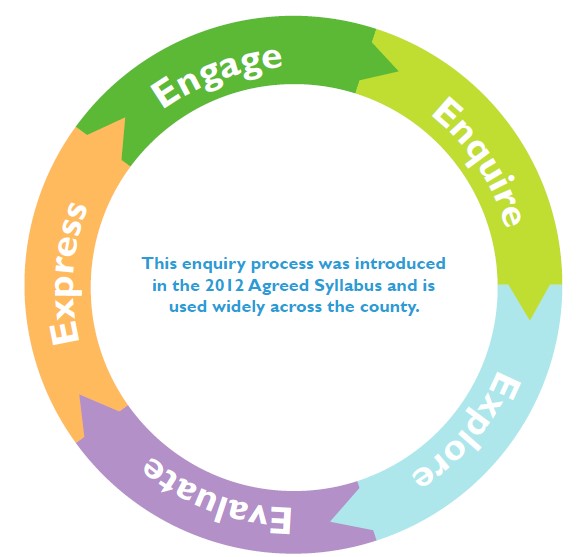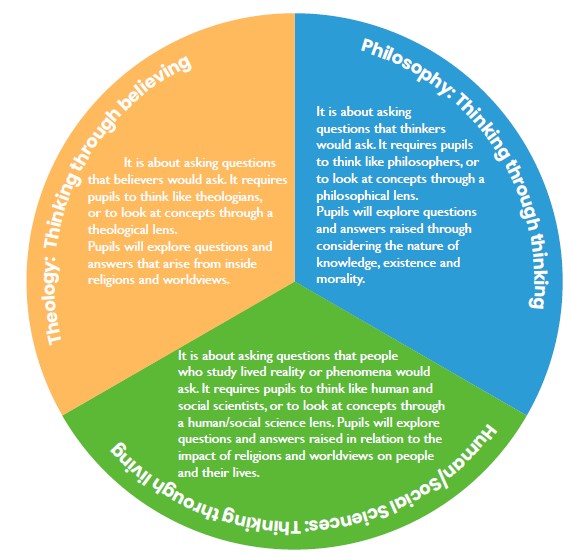Our vision
Our School vision is to “Love our neighbour”. RE supports and informs our vision, thus enabling everyone to flourish and to reach their full potential.
Aims
- To know about and understand a range of religious and non-religious world views by learning to see these through the lenses of theology, philosophy and human and social science
- To express ideas and insights about the nature, significance and impact of religious and non-religious worldviews through a multi-disciplinary approach.
- To gain and deploy skills rooted in theology, philosophy and human and social sciences engaging critically with religious and non-religious worldviews

During our RE lessons we plan and teach our learning through an enquiry approach. Each of our study units investigates a religious enquiry question. During the teaching of each enquiry we promote the children’s religious literacy skills by including opportunities for the children to engage, enquire, explore, evaluate and express their ideas, knowledge and understanding.
RE will enable pupils’ religious literacy. This means that pupils will be able to hold balanced and well-informed conversations about religions and worldviews. Pupils will be able to make sense of religion and world views around them and begin to understand the complex world in which they live. RE is primarily about enabling the children to become freethinking, critical participants, who can make informed judgments about matters of belief, which shape the global landscape.
The teaching of RE will balances three ‘ways of knowing’ in order for pupils to become more religiously literate.
The Theology way of knowing:
This is about asking questions that believers would ask. It examines where beliefs come from, how they have changed over time, how they are applied differently in different contexts and how they relate to each other.
The Philosophy way of knowing:
This is about asking questions that thinkers would ask. It is about finding out how and whether things make sense. It deals with questions of morality and ethics. It takes seriously questions about reality, knowledge and existence.
The Human and Social Science way of knowing:
This is about asking questions about how thinking and believing affects people and their lives. It explores the diverse ways in which people practice their beliefs, both now and in the past. It engages with the impact of beliefs on individuals, communities and societies.


